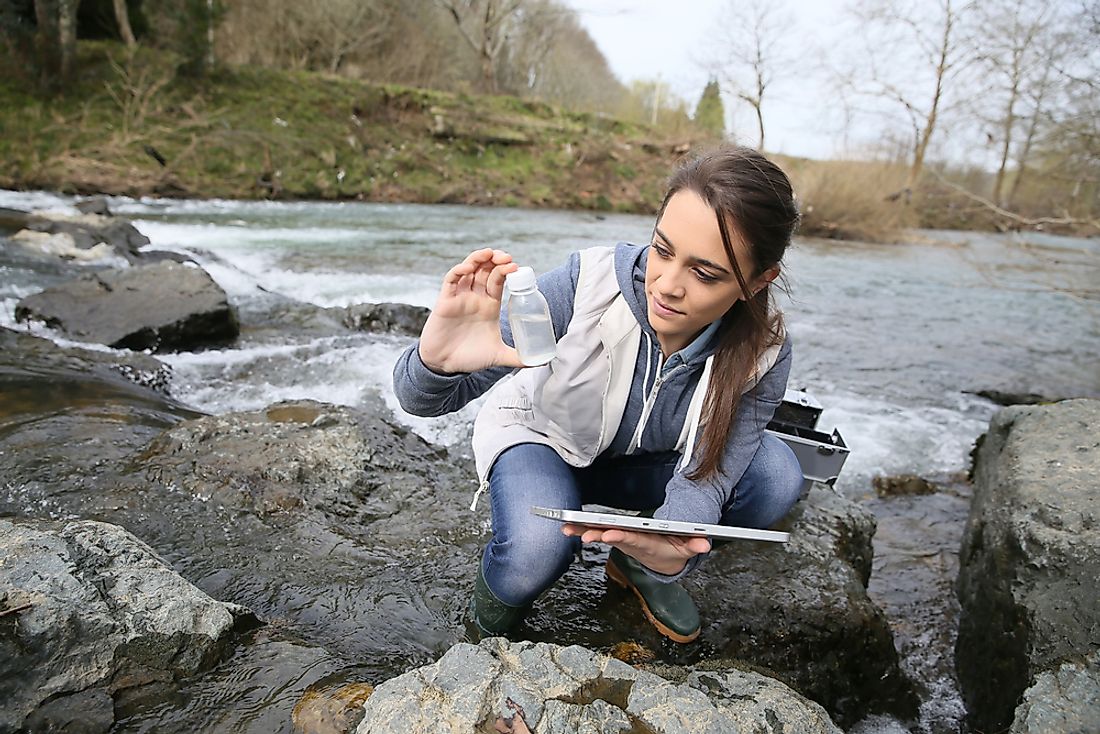Careers in Geography

Geography is the science of studying the earth and its features. The science aims at understanding space and place. Geographers try and answer questions as to why place differ and why certain objects are where they are found. The discipline is divided into two types: physical geography that focuses on the nature of the earth and human geography that attempts to explain how human utilizes and manages space.
5 Careers in Geography
Geographer
A geographer is a person who studies geography - particularly the earth’s environment and human society. The aim is to ascertain the relationship between the two. Physical geographers study the earth’s natural environment and its features while human geographers study how humans occupy the earth.
Cartographer
Cartography is the study and the art of making maps. Cartographers demonstrate the fact that spatial information can be understood from a modelled reality. Cartographers are tasked to identify the theme and the agenda of a map. They come up with the traits to be featured on the map and eliminate any complexity that may exist.
The oldest map known to humankind is thought to be the one dating from 9th century era Babylonia. Of course, since that time, cartography has evolved and at present maps that are more accurate can be produced. Technology has played a big role in map production in that cartographers employ the use of aerial photography and satellite imagery in obtaining finer physical details. For commercial purposes, maps are nowadays produced by the use of specialized software.
Ecologist
An ecologist studies how organisms interact with the environment they live in. An ecologist, therefore, concentrates on the distribution, diversity, and the population of a certain organism as well as their relation with one another and the environment. Ecologist seeks to explain how ecological functions are affected by biodiversity. It is because of this fact that ecology is thought to be a fuss of the three disciplines -geography, biology, and earth science.
Land Surveyor
Land surveying refers to the observation, measurement, and recording of distance between places for the purpose of planning, determination of boundaries or designing of roads and physical structures. The professional who does the measurement and designing in order to determine boundaries is called a land surveyor. This is the career of geography that is more practiced on a day to day business and is popular among land developers and contractors who built roads. It is also the field that has been overwhelmed by technology because of the need for accurate information. Land surveyors use 3D scanners, total stations, GPS receivers and digital levels to accurate make and locate boundaries between places.
Geologist
A geologist is a scholar who studies the earth in its liquid and solid matters. Geology includes the study of the origin and movement of ground water, rock ages, and their formation and the classification of fossils. Geologists are often professionally employed in mining sites to search for precious material such as metals, oil or other earth resources. Like the vast majority of entries on this list, the professional scope of a geologist is wide-ranging.
Conclusion
Geography as a discipline has a wide range of careers to choose from. One willing to work in the geography-related career should be ready to do a lot of field research as opposed to office work. Apart from the laboratory work, most of the geographer’s career is in the field studying. Geography, therefore, is a wide field carrying many opportunities.
Careers in Geography
| Rank | Career Name | Median Salary (USA, USD) |
|---|---|---|
| 1 | Geographer | 74,760 |
| 2 | Cartographer | 61,880 |
| 3 | Urban Planner | 45,723 |
| 4 | Park Ranger | 61,220 |
| 5 | Ecologist | 86,810 |
| 6 | Land Acquisition Analyst | 61,409 |
| 7 | Teacher | 57,200 |
| 8 | Real Estate Agent | 43,370 |
| 9 | Land Surveyor | 67,356 |
| 10 | Land Developer | 46,434 |
| 11 | Earth Scientist | 76,961 |
| 12 | Catrographer | 61,880 |
| 13 | GIS Specialist | 49,884 |
| 14 | Geologist | 92,000 |
| 15 | Statistician | 76,061 |











